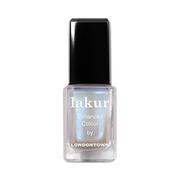Ceramides: Functions & Structure in Skin Care
Other than consistency, a major part of having a good skincare routine is including the best ingredients possible for your skin. Alongside Vitamin C and peptides, ceramides are another ingredient category that you should totally be thinking about. But wait - what are ceramides, anyway?
I know what you’re thinking - come on, another crazy skincare ingredient to read about? Here’s the thing - ceramides aren’t all that crazy. You already have them in your skin! That’s right - ceramides actually occur naturally in the skin and have a crucial role in the stratum corneum, aka the outermost layer of our skin.
So, what are ceramides?

Ceramides are “epidermal lipids that are important for skin barrier function.” To put that simply, they’re fat-based molecules in our skin that help to maintain good skin health. They sound pretty handy, right? Up to 50% of our skin is actually composed of ceramides, and they have a critical function when it comes to how our skin looks and feels.
How?
If you think of skin as a brick wall, with the skin cells as bricks, ceramides are like the cement that holds the entire thing together. They ensure that skin cells form a uniform layer to keep moisture in and keep skin-damaging molecules out - these include external skin irritants and breakout-causing bacteria, to name a few.
However, as we age, our own ceramide defences weaken - leaving our skin more vulnerable than it normally would be. That’s why it still pays off to use ceramide-rich products in your skincare routine - they can still fortify skin from the outside. You’ll see ceramides appear on ingredients lists as:
- Ceramide AP
- Ceramide EOP/Ceramide 1
- Ceramide NG
- Ceramide NP
- Ceramide N
So if you see these pop up on any ingredients lists, then you know you’ve got the right stuff. There are also ingredients that work as ceramide pre-cursors. Basically, what they do is encourage the skin to keep up ceramide production, so your skin can keep producing enough on its own. You might see these pop up as sphingosine and phytosphingosine in ingredients lists!

What do ceramides do?
Because ceramides are so good at keeping moisture in, you’d think that they’re mainly the best for dry skin, right?
Not at all - perhaps the best, if not one of the best things about ceramides is that they’re great for basically every skin type and every skin concern. Remember how they’re already a natural part of our skin structure?
This means that ceramides are welcomed to skin with open arms - there’s no adjustment period or potential for breakouts and irritation, and I think that’s pretty awesome. There’s a technical name for this too - ‘skin-identical ingredients’. Another famous skin-identical ingredient you might have heard of is squalane - but more on that another time.
The truth is, keeping hydration in the skin isn’t an issue exclusive to dry skin. There’s an important structure of the skin called the acid mantle or skin barrier. Almost every single skin problem can be traced back to issues with the skin barrier - irritated skin? Weakened barrier. Dehydration? Weakened barrier. Vulnerable, mature skin? Weakened barrier.
By strengthening the skin barrier, pretty much every single other aspect of the skin improves - that’s how crucial a healthy skin barrier is. At the end of the day, this is what makes ceramides something that can fit in everyone’s skincare routine - they’re an ingredient that works for everyone and benefits all skin types.
However, they can also be combined with other ingredients to create super-powered skincare. Ceramides get their best chance to shine for the skin when included in serums and moisturizers.
Our Favourite Ceramide Products
While it sounds like a good idea to add them to cleansers, their benefits usually get washed off faster than the skin can make use of them. Here are some of our fave ceramide-rich products designed to help you get the most of this skin-nourishing ingredient.
This rich, protective cream nourishes dry, sensitive skin with a combination of plant butters and ceramides.
Need some help putting together the best skincare routine for your skin type? Try our skin quiz!

















